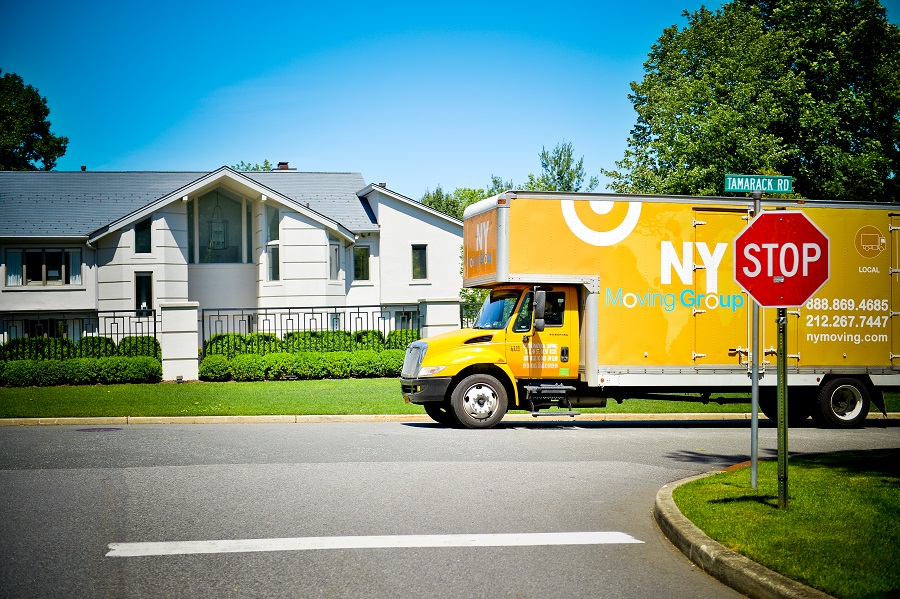A LITTLE EXTRA THOUGHT AND PREPARATION ARE REQUIRED TO MAKE MOVING WITH SENIORS A STRESS-FREE EXPERIENCE FOR ALL
When your move includes the senior members of your family, you’ll need to consider more than the usual relocation concerns to ensure a safe and happy transition. Whether you’re helping your elderly loved one move from a large home to a smaller one, or getting them situated into a senior living community, these tips will help ease the transition and make moving easier for everyone.
1. Downsizing
Perhaps one of the most important steps of any move, downsizing your belongings (or those of your elderly family member) prior to packing and moving is essential if you want to save time and money during the process. Go through the house room by room, making piles to keep, discard, and donate. Hold a garage sale to help fund the move.
Remember that many seniors are downsizing into significantly smaller living spaces from family-sized homes, and some large items like furniture may not be appropriate. A storage unit may be a great option for those large items you’d like to hang on to but can’t fit into the new space.
2. Preserving special items and memories
While sorting through household items, pay special attention to those things that are important or have sentimental value. Make sure that these are in a specially designated area so that, on moving day, they’re handled with the care they deserve.
3. Moving essentials
As you begin to pack, prepare a “travel kit” suitcase to hold about two weeks’ worth of clothing and toiletries; remember to pack medications, doctor’s phone numbers, and any important medical information or insurance cards.
Also, set aside a box to keep with you that contains “move-in essentials” such as a small tool set, flashlight, duct tape, hangers, light bulbs, toilet paper, kitchen basics, and a utility knife. Keep any very special, prized jewelry or other small beloved keepsakes, as well as important documents, with you during the move.
4. Medical Care
Plan ahead by getting medical records together and scheduling appointments with doctors as needed. Contact any mail order prescription providers and give them the new address and date of your move so that any automatically refilled prescriptions are sent to the new home.
5. Accessibility
When planning for elderly living environments, it is important to plan for any scenario well in advance. Be sure to check accessibility points all along the way if there are any mobility issues involved. You will want to determine the number of stairs and alternate routes, if there are any elevators or lifts, and if the new home is wheelchair accessible. Also, visit the new home ahead of time if possible to install safety measures like handles in the shower or near the toilet, and no slip surfaces throughout. Though your mom or granddad may not need them now, there may come a day when support devices are needed
6. Weather conditions
Before your moving day, keep an eye on any weather patterns and inclement weather that may be on the horizon. Moving in the cold or during a storm is tough on anyone, but can be especially difficult for seniors, who often have compromised immune systems and fragile bones. If you know you’re planning a move during the winter months, have a backup plan in case a storm rolls in on your intended moving date. The last thing you want is to have your loved one end up in the emergency room with pneumonia or, worse, a broken hip from a slippery fall.
7. Hire a company
The National Association of Senior Move Managers can help you locate a specialist that will help you every step of the way, and who is highly familiar with the intricacies of moving senior citizens. Consider hiring a moving company, as well, who will be able to carefully pack, ship, and unpack the entire home, removing a significant amount of stress from both you and your senior family members.
8. Plan ahead for the day to day
Before your moving day, jump online and find out about local activities for your senior loved one. No one likes to be stuck in the house all day watching TV, napping or reading. Many cities have senior citizen centers or group activities such as nature walks (or even “mall walking” when the weather dictates), karaoke, Tai chi, or arts and crafts courses. Aunt Edna may be over 80, but she isn’t necessarily over having a good time; help out by helping your loved ones make new friends and get involved with their community.
If you and the younger members of your family will be busy with work and school, or if your elderly family member will be living alone, perhaps also look into arranging for some kind of home health care or companionship during at least part of each day; someone to look in, visit for a bit and maybe even make sure that steady meals are being prepared and enjoyed. Programs like Meals On Wheels or PACE, a Medicare program, are available for those with financial constraints. Other sources for home health care assistance include the Older Americans Act, the Veterans’ Administration and Private Insurance.
Need more moving tips? Read our article about how to pack alone and save money.
Einat Mazafi is the owner of NY Moving, a local and long-distance moving company based in New York. She is also a specialist in providing the best relocation solutions to clients worldwide.


